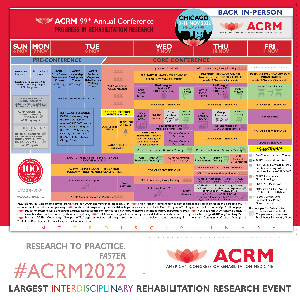Back
Symposium
Lifestyle Medicine
Brain Health - Application of Lifestyle Medicine Principles in Mild Cognitive Impairment and Dementia
Wednesday, November 9, 2022
10:45 AM – 12:00 PM

Donna P. Mann, OTD, MEd, BSOT, OTL, DipACLM
Interim Dean/Occupational Therapist
Eastern Washington University
Spangle, Washington, United States
Presenter(s)
Dementia, often considered a ‘normal’ aspect of aging, is the fastest growing epidemic, worldwide – Alzheimer’s disease is the 6th leading cause of death (CDC, 2021). Symptoms of cognitive decline are frequently present years – even decades – before a diagnosis is made. Early diagnosis can lead to improved outcomes and reversal of cognitive symptoms, even in the case of dementia. The purpose of this presentation is to raise awareness among rehabilitation professionals of the importance of early cognitive screenings as a preventive methodology and to explore the latest research on brain health and interventions for dementia and reversal of cognitive symptomology. This presentation will provide an overview of the evidence and directions for future practice in the area of cognitive function through the lens of lifestyle medicine and the ‘NEURO’ model. Principles of lifestyle medicine will be discussed. Applications for practice: primary care, secondary care, community and population health.
Learning Objectives:
- Upon completion, participants will be able to demonstrate awareness of the global burden of cognitive decline and dementia and the relevance to rehabilitation practice.
- Upon completion, participants will be able to apply the concepts of neurogenesis and successful cognitive aging to rehabilitation practice.
- Upon completion, participants will be able to design interventions using evidence-based principles of lifestyle medicine and the NEURO model for prevention and improved outcomes related to brain health.
- Upon completion, participants will be able to describe the role of rehabilitation professionals in the early identification and treatment of cognitive disorders including mild cognitive impairment and dementia.

.jpg)
